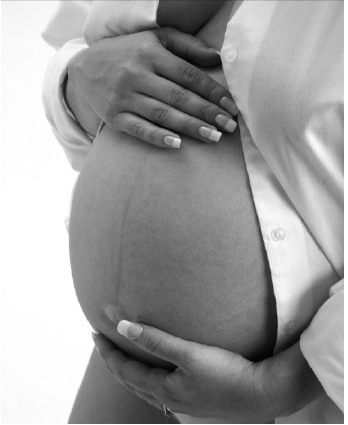Many women worry about pregnancy weight gain and want to lose weight when they are pregnant. But losing weight when you are pregnant is not something that women should do unless they so so in guidance with their Doctor.

A good point to note is that there is a common saying that a pregnant woman eats for two but a pregnant women needs approx 300 calories extra per day and the food eaten should be healthy and not be junk food.
So what should a pregnant woman eat? A balanced diet which is made up of complex carbohydrates, proteins, fats and dairy products as well as fruits and vegetables. Let’s take each of these, carefully.
1) Carbohydrates
A pregnant woman should aim for carbohydrates in the form of grain products as these are the main sources of complex carbohydrates. They help increase energy, control weight gain, nausea and constipation for the mother and provide folate, vitamin B, proteins and fibre for the baby.
Six servings a day of complex carbohydrates like pasta, whole wheat bread and brown rice should be sufficient and a serving would be a cup of cooked pasta or two slices of bread. Grain products like white bread and rice, biscuit and such are not quite as impressive in nutritional worth as their whole grain alternatives.
2)Proteins
These would be best when two servings of it are taken each day. A serving of protein is equal to two small eggs, half a cup dried beans, cooked lentils or split peas or a 100 gm of poultry, fish or lean meat.
Proteins have amino acids which build the human cells. They are as such very important for the foetus to develop and also prevent pre-eclampsia in the latter part of the pregnancy. Being found usually in iron-rich foods, they also help to oxygenate the blood of both mother and baby, properly.
3) Fruits and Vegetables
The minerals, vitamins and fibre these provide, prevent constipation. They give folate, calcium, iron and vitamin B. Vitamin A, usually found in yellow fruits and green leafy vegetables do wonders for the baby’s eye, hair, skin and bones. Its supplement however, has been linked to birth deformities in babies so please, stick to getting this vitamin from whole foods. Vitamin C in fruits and vegetables such as tomatoes, berries, broccoli and melons are essential for tissue repair and growth of the baby’s bones. Three servings should be taken of this vitamin daily as it cannot be stored in the body in large amounts.
Generally, two servings of fruit and five, of veggies should be okay daily. A whole fruit, half a cup of chopped fruits or non-leafy vegetables or a full cup of salad leaves, each pass for a serving.
4)Dairy Products
Dairy products should be taken up to at least 4 servings a day. Dairy products contain calcium which helps the development of the baby’s muscles, heart and nerves, blood clotting and the building of the baby’s teeth. Servings for dairy products would be one cup of milk or yoghurt or two slices of cheese. For lactose intolerance you could work with canned bony fishes like salmon.
5)Fats
Fats are necessary for the baby’s development. While a sweet tooth can be indulged once in a while with cakes and ice cream, it’s really the essential fats found in poly and mono unsaturated oils like sunflower and olive oils respectively that you want to aim for.
6)Water and Fluids
In the overall scheme of things, the place of water and fluids cannot be ignored. They help in preventing constipation, early labour and stretch marks. At least two litres a day is advisable and even more, if you are retaining fluid. The progression of the pregnancy would also demand the intake of more fluid.
At times when we do not feel like drinking water other fluids like soup, milk and juice can be taken to add up to the required amount but water should always be the first drink of choice and caffeine, limited to one cup per day.
Finally, it would be easier to stick to your healthy diet if you indulge in a sweet treat once in a while. Make those treats beautiful options like a fruit salad with honey and yoghurt or a strawberry, blueberry and flaxseed smoothie and the wonderful effects of your entire diet on both you and your baby would be evident long after your baby is born.
To see more nutrition advice for pregnancy and breastfeeding click here
To see what exercise you should do in pregnancy click here
